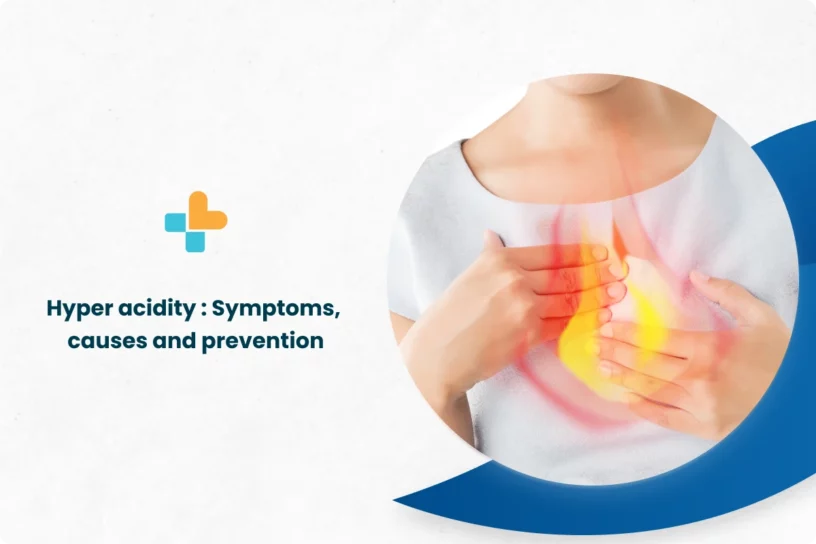Introductory Paragraph
Acid reflux disease, also known as hyperacidity, is a common condition that affects millions of people worldwide. It occurs when the stomach produces too much acid and it flows back into the esophagus, causing a burning sensation in the chest and throat. This condition can be uncomfortable and may lead to more serious health problems if left untreated.
What Causes Hyperacidity
There are several factors that can contribute to hyperacidity, including:
- Overeating: Consuming large meals or eating too quickly can cause the stomach to produce more acid than it needs.
- Eating certain foods: Foods that are high in acid, such as citrus fruits, tomatoes, and spicy foods, can trigger acid reflux.
- Being overweight: Being overweight or obese can put extra pressure on the stomach and cause acid to flow back into the esophagus.
- Lifestyle factors: Smoking, drinking alcohol, and consuming caffeine can increase the risk of acid reflux.
- Medical conditions: Hiatal hernias, pregnancy, and certain medications can also cause hyperacidity.
What Are the Symptoms of Acid Reflux Disease?
The most common symptoms of acid reflux disease are heartburn and regurgitation. Other symptoms may include:
- Chest pain
- A sour taste in the mouth
- Difficulty swallowing
- A chronic cough
- Hoarseness
- Sore throat
- A feeling of a lump in the throat
Who Are at Risk
Anyone can develop acid reflux disease, but certain groups of people are more likely to experience it. These include:
- People who are overweight or obese
- Pregnant women
- People who smoke
- People who consume alcohol or caffeine
- People who eat large meals or eat too quickly
- People who have a hiatal hernia
How Is It Diagnosed?
A doctor can diagnose acid reflux disease by performing a physical examination and asking about symptoms. They may also recommend additional tests, such as an endoscopy, to confirm the diagnosis.
How to Avoid It
There are several steps that can be taken to reduce the risk of developing acid reflux disease. These include:
- Losing weight if overweight or obese
- Eating smaller, more frequent meals
- Avoiding foods and drinks that trigger acid reflux
- Quitting smoking and avoiding alcohol and caffeine
- Wearing loose clothing
- Elevating the head of the bed
Treatment
Treatment for acid reflux disease may include:
- Over-the-counter antacids to neutralize stomach acid
- H-2 receptor blockers to reduce acid production
- Proton pump inhibitors to block acid production
- Prokinetics to help the stomach empty more quickly
- Surgery in severe cases
When to Consult a Doctor
If you experience symptoms of acid reflux disease, it is important to consult a doctor. They can help determine the cause of your symptoms and recommend the most appropriate treatment.
Conclusion
Acid reflux disease, also known as hyperacidity, is a common condition that affects millions of people worldwide. It is caused by the stomach producing too much acid and flowing back into the esophagus. Symptoms include heartburn and regurgitation, and can lead to more serious health problems if left untreated. Risk factors include being overweight or obese, pregnancy, smoking, alcohol and caffeine consumption, and certain medical conditions. The condition can be diagnosed by a physical examination and possibly additional tests. It can be prevented by losing weight, eating smaller, more frequent meals, avoiding trigger foods and drinks, and making lifestyle changes such as quitting smoking and elevating the head of the bed while sleeping. Treatment options include over-the-counter antacids, H-2 receptor blockers, proton pump inhibitors, prokinetics, and surgery in severe cases. If you experience symptoms of acid reflux disease, it is important to consult a doctor for proper diagnosis and treatment. With the proper care and management, acid reflux disease can be effectively controlled.
FAQs:
What are symptoms of hyper acidity?
-The most common symptoms of hyperacidity, also known as acid reflux disease, are heartburn and regurgitation. Other symptoms may include chest pain, a sour taste in the mouth, difficulty swallowing, a chronic cough, hoarseness, sore throat, and a feeling of a lump in the throat.
Is hyper acidity serious?
-If left untreated, hyperacidity can lead to more serious health problems such as esophagitis, Barrett’s esophagus, and even esophageal cancer. It is important to consult a doctor if you experience symptoms of acid reflux disease.
What is the fastest way to cure hyper acidity?
-The fastest way to alleviate symptoms of hyperacidity would be to take over-the-counter antacids, which neutralize stomach acid and provide quick relief. However, it is important to consult a doctor for proper diagnosis and treatment.
Is hyperacidity curable?
-Acid reflux disease, or hyperacidity, can often be managed with lifestyle changes and medication, but it may not be completely curable. In some cases, surgery may be necessary. It is important to consult a doctor for proper diagnosis and treatment.
If you need additional information or would like to speak with a professional, feel free to contact us right away at +91 636-610-0800 or book an appointment on our website.
Our Hospital Locations
Gastroenterology Surgery Hospitals in Chandigarh | Gastroenterology Surgery Hospitals in Bangalore | Gastroenterology Surgery Hospitals in Jaipur | Gastroenterology Surgery Hospitals in NCR | Gastroenterology Surgery Hospitals in Hyderabad
Our Doctors
Gastroenterology Surgery Doctors in Chandigarh | Gastroenterology Surgery Doctors in Bangalore | Gastroenterology Surgery Doctors in Jaipur | Gastroenterology Surgery Doctors in NCR | Gastroenterology Surgery Doctors in Hyderabad
About the Author

Dr. S. Goel
Dr. S. Goel is a renowned Internal Medicine Specialist currently practicing at Ayu Health, Bangalore. He is a Specialist in Internal Medicine, Diabetes HTN, Paediatric Care, and Family Medicine.




